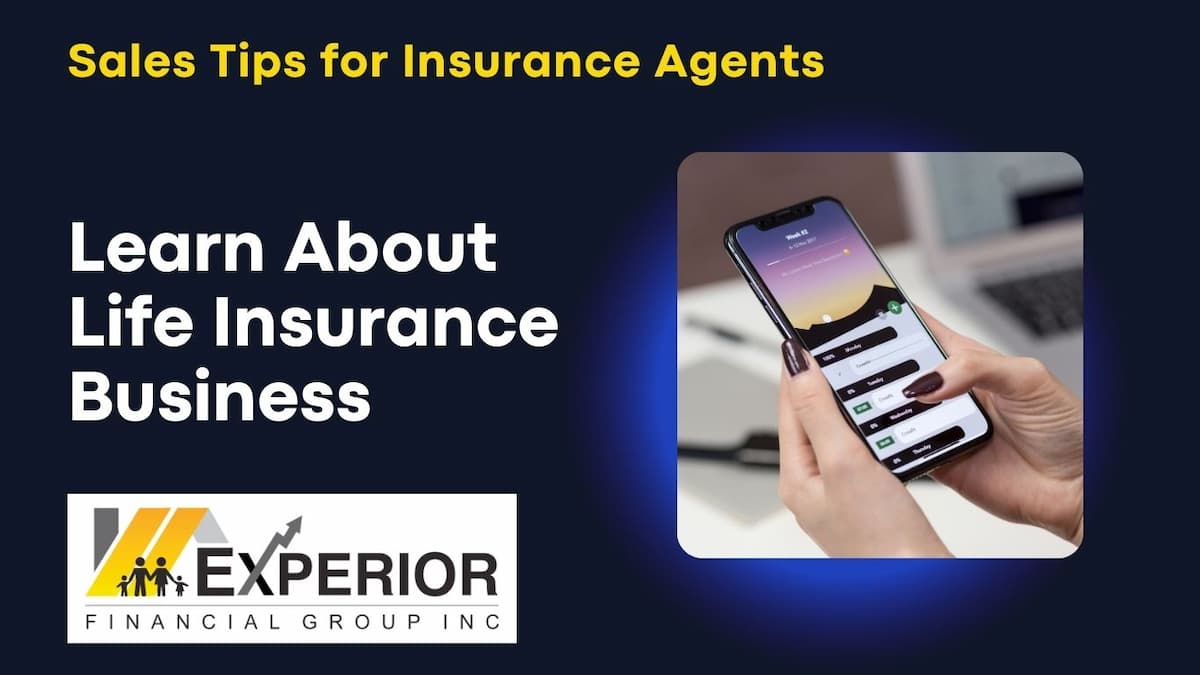Say goodbye to the struggle of finding high-quality life insurance leads and hello to a thriving business. Let’s get started and discover the best ways for agents to get life insurance leads that will take your success to new heights. Finding the best life insurance leads involves exploring various strategies and methods for insurance agents to excel in their field.
Unlocking Success: Boosting Insurance Sales with Targeted Leads for Agents
How to get leads for my insurance business?
If you are an independent insurance sales agent, you want to succeed by finding and attracting more quality life insurance sales leads. But in a competitive market, you can’t just rely on old-fashioned marketing methods to reach your sales targets. You need to use the power of targeted leads to boost your sales and income. In this blog post, we’ll show you how to use strategies and techniques that can help you grow your business by using targeted leads effectively.
Generating qualified life insurance leads is critical for agents looking to grow their book of business. With most agents getting the majority of their clients through referrals, being proactive about lead generation is key for long-term success. This allows agents to build a steady pipeline of prospects to convert into customers rather than relying solely on existing relationships.
How to Be Successful Selling Life Insurance
The Importance of Life Insurance Leads for Agents and Their Impact on Business Growth
There are several compelling reasons lead generation should be a top priority for life insurance agencies:
- New customer acquisition. Insurance lead generation provides a way to connect with prospects outside an agent’s immediate sphere of influence. This brings in fresh clients versus waiting for referrals.
- Expands reach. Casting a wider net for insurance leads for agents allows them to attract clients they may never encounter otherwise. Things like online ads, events, and content marketing extend an agent’s visibility.
- Reduces reliance on renewals. While serving existing clients is important, agents can’t grow on renewals alone. New prospects prevent stagnation.
- Sustains growth. As an agency expands, more leads are required to continually add new policies to the books. Creating new leads provides that ongoing pipeline.
- Builds resilience. Slow lead flow impacts revenues. Having robust lead generation creates stability and acts as a hedge against fluctuating renewal rates.
In summary, lead generation is the engine that powers growth for insurance professionals. A multifaceted approach to lead creation is essential for attracting prospects, winning new business and scaling an agency over time.
Selling Term Life Insurance Policies
Supercharge Your Sales: How to Generate Quality Leads for Life Insurance Sales Professionals
Best way to generate life insurance leads
An insurance lead is not the same thing as an insurance customer. A lead is someone who has shown interest in purchasing insurance but has not yet become a policyholder. Whereas a customer has gone through the full sales process and purchased a policy.
So what defines and qualifies someone as a strong insurance lead? There are a few key characteristics for this type of insurance leads:
- Need for Insurance: The lead recognizes they require insurance coverage and are motivated to shop for a policy. This need may be triggered by life events or circumstances.
- Ability to Pay: The lead has sufficient income and assets to afford policy premiums. This ensures they can become a paying customer.
- Contact Information Provided: A lead shares contact details enabling an agent to reach them. This includes name, phone, email, and sometimes mailing address.
- Engagement Shown: Rather than passively receiving information, the lead engages with content and expresses interest. This could mean requesting a quote, signing up for a newsletter, attending an event, or interacting on social media.
- Matches Target Customer Profile: The lead within the ideal customer profile for a specific insurance product, demographic, or age. This alignment indicates higher conversion potential.
Insurance providers rank and score leads based on these qualities to prioritize follow-up and determine sales readiness. Lead scoring models assign points for criteria like demographics, behaviors, interactions, and customer fit. Agents focus efforts on engaging and nurturing high-scoring leads most likely to convert to customers. Defining and identifying quality leads is essential for optimizing sales and marketing.
Life Insurance Sales Scripts for Insurance Agents
How to Find the Life Insurance Leads You Want
If you are an insurance sales agent, you know how important it is to find and attract potential customers who are interested in buying life insurance policies. The folks who have given you their contact information to follow up with or who have indicated some interest in buying life insurance are known as life insurance leads. Finding good life insurance leads can be challenging, but it is not impossible. In this blog post, we will share some of the best ways to find life insurance leads, how to qualify them, and how to convert them into sales. By following these tips, you will be able to grow your business and increase your income.
What are Targeted Insurance Leads?
The concept of targeted leads revolves around identifying future customers who are more likely to be interested in your product or service. These individuals typically fall within certain demographics or niches that align with your offerings. For instance, if you’re selling health insurance, a targeted lead might be someone in their 40s worried about future medical expenses.
In simpler terms, targeted leads are potential clients who are not just random individuals but those who have a higher probability of purchasing your insurance policies.

The Importance of Targeted Leads for Insurance Business
Targeted leads are crucial for agents for a variety of reasons:
- Higher Conversion Rates: With targeted leads, you’re focusing on people who are already interested or in need of your insurance services. This increases the likelihood of these prospects converting into actual clients.
- Efficient Use of Resources: Without targeted leads, agents might waste time and resources reaching out to people who have no interest in their insurance products. But by focusing on targeted leads, agents can more efficiently use their resources, concentrating their efforts on high-potential clients.
- Improved Client Relationships: When you understand your targeted leads, you can tailor your communication and offers to their needs. This personalization can lead to better relationships with your clients, improving client satisfaction and retention.
The Power of Niche Targeting in the Insurance Industry
Niche targeting takes the concept of targeted leads a step further. It involves focusing on a very specific subset of the market. For an insurance agent, this could mean specializing in insurance leads for small business owners, teachers, or veterans.
An insurance lead is not the same thing as an insurance customer. A lead is someone who has shown interest in purchasing insurance but has not yet become a policyholder. Whereas a customer has gone through the full sales process and purchased a policy.
So what defines and qualifies someone as a strong insurance lead? There are a few key characteristics of this type of insurance leads:
- Exclusive life insurance leads: These are the leads that are sold to only one agent or agency. Exclusive insurance leads are usually more expensive, but they have a higher conversion rate and less competition.
- Shared life insurance leads: These are the leads that are sold to multiple agents or agencies. They are cheaper, but they have a lower conversion rate and more competition.
- Real-time leads: These are the leads that are generated and delivered to you as soon as the prospect fills out a form or requests a life insurance quote online with the intent to buy insurance. They are warm leads, fresh and responsive, but they may also be more demanding and impatient.
- Aged life insurance leads: These are the leads that are generated and stored for a period of time before being sold to you. They are cold leads and cheaper, but they may also be less interested and harder to reach.
Niche Targeting has Several Benefits:
- Less Competition: By focusing on a niche, and right audience you’re likely to face less competition compared to broader markets.
- Increased Expertise: As you focus on a specific niche, you’ll become more knowledgeable about the needs, challenges, and opportunities within that market. This expertise can make you more appealing to potential clients.
- Better Client Loyalty: Niche clients often feel underserved by generalist providers. By catering specifically to their needs, you can build stronger relationships and loyalty.
Targeted leads and niche marketing are powerful strategies for insurance agents. They can lead to higher conversion rates, more efficient use of resources, and improved client relationships. So, if you’re an insurance agent looking to grow your business, it’s worth considering how you can better target your insurance leads.
What is Lead Generation and Why is it Important for Independent Agents?
By committing to an insurance leads strategy, you can increase your knowledge of insurance, provide more value to your customers, and gain more insurance leads. Investing in insurance leads will help you get more contacts and create a more successful insurance business. With the right strategy, you can get more leads and achieve the desired benefit of increased insurance sales.
To generate insurance leads is important for independent agents because it helps them to identify potential customers and build relationships with them. It also helps agents to stay competitive in the insurance field, as agents competing for the same customers must find ways to differentiate themselves and stand out from the crowd.
Lead capture can involve a variety of tactics, such as starting a referral program, networking with other agents, attending events and groups, and joining alumni groups. Agents can also buy leads from marketing companies, though this can be a costly option and may not always yield high quality leads.
Independent agents should also consider investing in their own targeted leads, such as creating valuable information for their website and social media and engaging in marketing activities to generate new qualified leads. This will help agents to create a steady flow of potential clients and build a more successful insurance agency.
Understanding Lead Generation Companies
Generating leads for insurance sales can be a difficult task for independent insurance agents. Fortunately, there are insurance leads companies that specialize in providing high quality leads to insurance people. Leads companies provide agents with exclusive leads that are qualified and ready to buy. They also provide agents with fast access to new leads, which can help them get a regular flow of new sales.
Exclusive Insurance Leads
Such companies can provide you with instant access to high quality leads. However, buying good leads can be expensive and time consuming.
How to Generate Quality Leads on Your Own
Reaching Potential Customers Through Referrals and Networking
Maximizing Referrals
One of the best ways for insurance agents to generate high-quality leads is through referrals from existing clients. Unlike cold leads, referred leads already have an established level of trust and familiarity with you through the client making the referral. Focusing your lead generation efforts on maximizing referrals can provide a steady stream of warm leads.
Asking for Referrals
Don’t be afraid to ask your clients directly for referrals to friends, family members, or colleagues who may need insurance. Many clients are happy to refer others to an agent who has provided them with great service. When asking for a referral, explain what type of clients you specialize in working with, the insurance needs you can meet, and what makes your services stand out. The easier it is for the client to understand who to refer to you, the more referrals you are likely to receive.
Referral Programs
Consider creating a formal referral program that rewards clients for connecting you with new leads. For example, you could offer a gift card or discount on their next policy renewal for every qualified lead they send your way. The referred lead can also get a similar reward once they become a customer. This incentivizes the referrer while also encouraging the new lead to do business with you. Make sure the rewards are enticing enough to get clients excited about making referrals.
Thanking Referrers
When a client sends a new lead your way, always follow up to thank them. Send a handwritten note or make a phone call to let them know you appreciate them thinking of you. When you close a referred lead, give the referrer an update and thank them again for the business. Showing gratitude will make clients feel valued and eager to send more referrals your way.
Reaching prospective clients through networking and referral programs is a great way for insurance consultants to generate new leads.
Attend local networking events as a guest speaker and become a committed member of your local networking group. By joining a networking group, you can expand your professional connections and tap into a wealth of opportunities. This will help you build relationships and send business your way. Additionally, you can join an alumni association to get access to more leads.
Building Connections: The Power of Networking for Insurance Leads
Hosting Events
Hosting events is an effective lead generation strategy for insurance agents. Events allow you to connect directly with potential clients and showcase your expertise. Consider hosting seminars, open houses, and client appreciation events.
Seminars
Seminars are an excellent way to establish yourself as a thought leader in the industry. Choose relevant topics that will attract your target clients, like retirement planning or protecting assets. Bring in guest speakers to add more value. Market the event through social media, email, and direct mail. Follow up with all attendees afterwards to convert them into leads.
Open Houses
An open house event allows you to open your office to give people a chance to meet you and your team. Showcase your services and how you can meet customer needs. Have brochures and content available so visitors can learn more. Collect contact information of attendees to add to your pipeline. Offer food, drinks, and entertainment to create a lively atmosphere.
Client Appreciation Events
It’s important to also show appreciation for existing clients. Host a special party or reception just for them. This strengthens relationships so they’re more likely to refer others to you. It’s also a chance to update clients on new offerings. Consider hosting client appreciation events quarterly or bi-annually. Send handwritten invitations and have giveaways to excite guests.
Events require planning but provide valuable face-to-face interactions with potential clients. Choose events that align with your goals and audience. With a well-executed event, you can generate many promising insurance leads.
How To Start Your Own Independent Insurance Agency
Convert Website Visitors to Leads for Insurance Sales – Online Marketing
A good looking website can lead to a better quality insurance leads program. Before providing their contact information via email, visitors to your website should be given the opportunity to thoroughly explore your value proposition, including the range of products and services you offer.
Creating great website content is a key to keeping visitors engaged.
- Clear Call-to-Action (CTA): Place a prominent CTA on your website, directing visitors to take specific actions such as “Get a Free Quote” or “Contact an Agent.” Make the CTA visually appealing and ensure it stands out from other elements on the page.
- Compelling Content: Provide informative and engaging content related to insurance agencies and similar topics. This can include blog posts, articles, video content, guides, or videos that address common questions, concerns, or trends in the insurance industry. Show your skill and build trust with your audience.
- Optimize Landing Pages: Create dedicated landing pages for specific products or services you sell. Optimize these pages with relevant keywords for better results on the first page of search engines, like Google. Highlight unique selling points and include testimonials or case studies to build credibility.
- Lead Capture Forms: Incorporate lead capture forms throughout your website to collect visitor information. Keep the forms concise, asking for essential details such as name, email address, and phone number. Consider offering a valuable resource or incentive in exchange for their contact information.
- Live Chat Support: Implement a live chat feature on your website to provide real-time assistance to visitors. Promptly respond to their queries, guide them through the insurance options, and offer personalized advice. Live chat can significantly improve engagement and conversion rates.
- Personalization: Tailor the content and user experience based on visitor preferences and behavior. Use cookies and website analytics to understand their interests, previous interactions, and demographics. Leverage this data to provide personalized recommendations and offers.
- Testimonials and Social Proof: Display testimonials, reviews, and success stories from satisfied clients to establish social proof. Highlight positive experiences to instill trust and confidence in potential clients. Consider integrating social media feeds to showcase real-time interactions and engagement.
- Clear Contact Information: Ensure your contact information is prominently displayed on every page of your website. Provide multiple channels for visitors to reach out, such as phone numbers, email addresses, and physical addresses. Make it easy for them to contact an agent for further assistance.
- Mobile-Friendly Design: To enhance the performance of your website on mobile devices, it is crucial to optimize it. Since a substantial portion of web traffic originates from smartphones and tablets, it’s important to provide a seamless customer experience across different screen sizes. This involves ensuring effortless navigation and facilitating conversions for visitors accessing your site on their mobile devices.
- Follow-Up and Nurturing: Implement an effective follow-up system to nurture leads and guide them through the sales process. Use email marketing campaigns, automated responses, and personalized communication to stay in touch with each customer. Provide relevant content and offers to keep them engaged.
Unlocking Insurance Sales Leads: How to Sell and Make Money
By implementing targeted strategies, independent insurance agents can unlock their true sales potential and achieve remarkable success. Remember to focus on understanding your ideal customer profile, utilizing technology and automation, and building strong relationships with your leads. With these strategies in place, you’ll be well-equipped to navigate the competitive landscape of the insurance area and boost your sales to new heights.
TIPS: 5 Effective Lead Generation Tips for Insurance Agents

Valuable insights to help you succeed in the competitive market
We’ll explore practical examples, discuss leveraging your close community, highlight the financial benefits, and emphasize the importance of continuous learning to engage prospects and increase your revenue. So, let’s dive in and discover the key strategies for maximizing your insurance sales potential.
1. Leveraging Examples
One of the most powerful tools in selling insurance is the use of real-life example. People relate better to situations they can envision themselves in. Share success stories and case studies to illustrate how term life insurance has protected individuals and families in times of crisis. These examples can resonate with prospects, instill trust, and highlight the importance of having proper coverage.
2. Tapping into Your Network
Your network of friends and colleagues can be a goldmine for generating insurance sales leads. Start by reaching out to them and offering your expertise. Educate them about the different policies available and the benefits they provide. Word-of-mouth referrals from relatives can be highly influential and help you expand your customer base and generate leads.
3. The Financial Advantage
Highlighting the financial advantages of insurance is crucial. Most people understand the importance of protecting their assets and loved ones, but they may not realize the potential financial impact of being underinsured or uninsured. Explain how insurance can provide financial security, save money, and peace of mind in case of unforeseen events or emergencies.
4. Continuous Learning
In the insurance profession, knowledge is power. The more knowledge you possess about different types of insurance, coverage options, and industry trends, the better equipped you are to engage with the leads you uncover. Stay updated with industry news, attend seminars, and participate in professional development programs. The more knowledgeable you become, the more confident and convincing you’ll be when discussing insurance solutions with potential clients.
5. Engaging Prospects
Effective generation of leads involves engaging prospects in meaningful conversations. Understand their needs and tailor your offerings accordingly. Ask questions, actively listen, and provide personalized recommendations based on their unique circumstances. Establishing a connection and demonstrating genuine care will set you apart from competitors and increase the likelihood of closing a sale.
12 Clever Ways to Get Insurance Leads
How to Convert Life Insurance Leads Into Sales? Selling Life Insurance
The final step is to convert your qualified life insurance lead to a sale. Converting life insurance leads into sales means persuading them to sign up for a life insurance policy with you. You can convert many leads into sales by following these tips:
- Build rapport and trust: You should try to establish a positive and professional relationship with your leads by being friendly, respectful, and helpful. You should also show them that you are knowledgeable, experienced, and trustworthy by providing them with relevant and accurate information, testimonials, and credentials.
- Understand their needs and wants: You should try to understand what your leads are looking for and what they value in life insurance. You should also try to identify their pain points, challenges, objections, and address them accordingly. You should also try to find out their preferences, expectations, and motivations and tailor your offer to match them.
- Present your offer and benefits: You should try to present your offer and benefits in a clear and compelling way, by highlighting the features, advantages, and benefits of your life insurance policy. Additionally, you should try to make your deal stand out from others by focusing on your unique selling proposition (USP), value proposition, or competitive edge. To back up your claims and make yourself seem more trustworthy, you should also try to use social proof like reviews, testimonials, or numbers.
- Ask for the sale and close the deal: You should try to ask for the sale and close the deal by using some effective closing techniques, such as:
- The assumptive close: This is where you assume that the lead has already decided to buy, and you proceed to finalize the details, such as the payment method, the policy start date, etc.
- The alternative close: This is where you give the lead two or more options to choose from, such as the type of life insurance policy, the amount of coverage, the frequency of payment, etc.
- The trial close: This is where you test the lead’s readiness to buy, by asking them some questions, such as “How do you feel about this policy?”, “Are you happy with this offer?”, “Do you have any questions or concerns?”, etc.
FAQ: Frequently Asked Questions About Insurance Lead Generation
Lead generation is a crucial process that involves capturing the attention of strangers and potential customers, converting them into individuals who have expressed interest in your company’s products or services. This practice is highly valuable for insurance agents as it helps them attract new clients and increase sales effectively. By actively generating leads, agents can specifically target individuals who exhibit genuine interest in their insurance offerings. This approach allows them to optimize their marketing strategies and ultimately enhance their return on investment (ROI). With a well-executed lead generation strategy, insurance agents can tap into a pool of interested prospects, ultimately driving growth and success in their business.
Insurance agents can generate leads on their own by using search engine optimization (SEO) to increase their visibility on Google. Additionally, they can create valuable content on their website, such as blog posts, whitepapers, and ebooks, which can help to attract potential clients. They can also join local networking groups and alumni associations, and attend local events to build relationships and get referrals.
When buying leads, insurance agents should look for exclusive leads that are not shared with other agents. They should also look for leads that are qualified, meaning that they have already expressed interest in the agent’s product or service.
Networking and referral programs are a great way for insurance agents to reach customers. By joining local networking groups and alumni associations, agents can build relationships and get referrals from other members. Additionally, they can start a referral program of their own by offering incentives to current customers who refer new customers to their business.
Creating professional content is a great way for insurance agents to maximize their customer acquisition results. Agents should create content that is relevant to their target audience and provides useful information about their products. Additionally, they should optimize their content for SEO to increase their websites visibility and reach more potential customers.
Create high-quality, educational content such as blog posts, videos, podcasts, or webinars that address common insurance-related questions and concerns. Share this content on your website, social media platforms, and email newsletters to attract and engage potential leads.
Yes, it is common for insurance agents and agencies to purchase leads as part of their marketing efforts. Buying leads can be a viable strategy to supplement other lead capture methods and reach a wider audience of potential prospects.
Purchasing leads can save time and effort in the initial stages of prospecting by providing a list of individuals who have expressed interest in insurance or have been pre-qualified based on specific criteria. These leads can be obtained from marketing companies, online marketplaces, or through partnerships with other businesses.
Leads in insurance sales refer to individuals who have shown interest in purchasing insurance products or services. These leads typically provide their contact information, such as name, phone number, and email address, allowing independent agents or sales representatives to follow up with them and convert them into actual customers.












